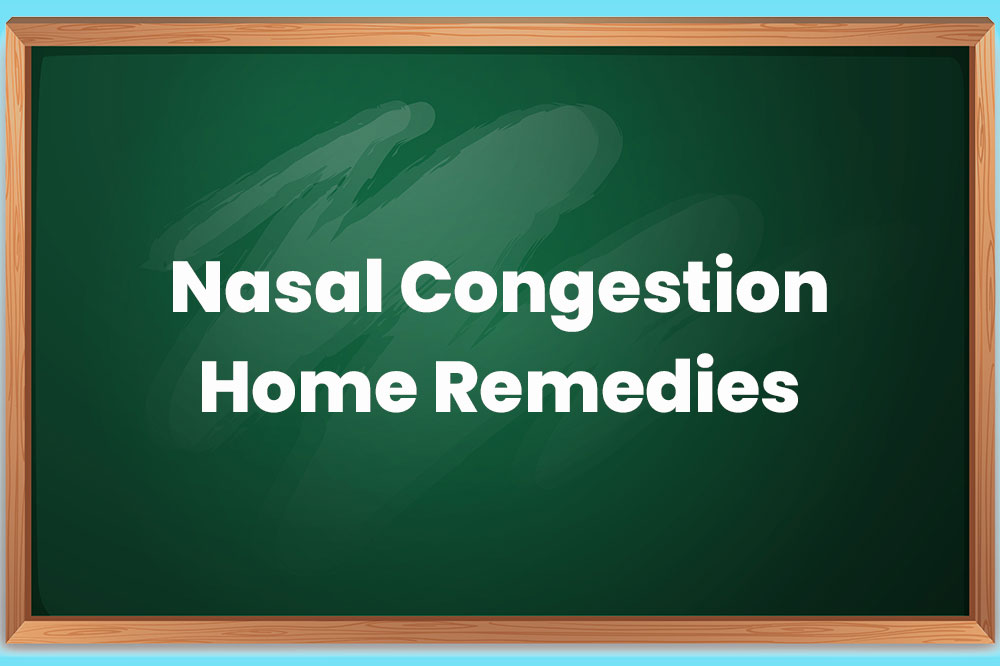Comprehensive Strategies to Relieve Nasal Blockage and Improve Breathing Comfort
Discover comprehensive strategies to alleviate nasal blockage effectively. From simple home remedies like steam inhalation and saline sprays to safe use of OTC medications, this guide provides detailed methods to improve nasal airflow and comfort. Learn when to see a doctor and how to take precautions, ensuring safe relief for all ages and conditions.

Comprehensive Strategies to Relieve Nasal Blockage and Improve Breathing Comfort
Nasal blockage, commonly experienced as a congested or stuffy nose, occurs when the tissues lining the nasal passages become swollen and inflamed. This condition is often accompanied by excess mucus production, which further hampers airflow and causes discomfort. Various factors can contribute to nasal congestion, including colds, sinus infections, allergic reactions, and the flu. Understanding the root causes is crucial for effective management and relief.
Nasal congestion can be quite bothersome, affecting both children and adults alike. While symptoms often tend to resolve as the underlying condition improves, the discomfort remains a significant concern. Fortunately, there are numerous practical remedies and treatments available that can help alleviate nasal blockage quickly and safely. Whether through simple home remedies or over-the-counter medications, managing nasal congestion effectively can significantly improve quality of life, especially during illness or allergy seasons.
In this comprehensive guide, we explore various effective strategies to tackle nasal congestion. From practical home remedies to appropriate medication use, these methods aim to provide relief, promote easier breathing, and prevent complications. Additionally, we will highlight essential precautions and when to seek professional medical assistance to ensure safe and effective treatment.
Available Treatments and Remedies for Nasal Congestion
Dealing with nasal congestion often involves a combination of simple home remedies and, when necessary, medical treatments. Here, we delve into both approaches that can help you breathe easier and reduce discomfort caused by a blocked nose.
Home Remedies for Nasal Blockage
Stay Hydrated: Drinking plenty of fluids such as water, herbal teas, and warm broths helps thin the mucus in the nasal passages. This thinning process facilitates easier drainage and reduces congestion. Proper hydration is especially important during colds, allergies, or sinus infections, as it supports the body's natural immune response.
Inhale Steam: Steam inhalation is a highly effective natural remedy for opening up nasal passages. By breathing in warm steam from a bowl of hot water or a steaming shower, the moisture helps loosen mucus and reduce inflammation. To enhance efficacy, add essential oils like eucalyptus or menthol, which provide additional decongestant benefits. Adults and older children should exercise caution to avoid burns while inhaling steam.
Elevate the Head During Sleep: Sleeping with the head elevated using extra pillows prevents mucus accumulation in the nasal passages, making breathing easier during sleep. Elevation reduces nasal pressure and can minimize the severity of congestion overnight, providing restful sleep.
Saline Nasal Sprays: These sprays contain a saltwater solution that moistens dry nasal tissues and flushes out mucus and allergens. Available over-the-counter, saline sprays are a safe, gentle, and effective way to relieve congestion without medication side effects. You can buy pre-made sprays or easily prepare your own at home using warm water and salt.
Medication-Based Treatments
For more persistent or severe nasal congestion, medications can provide significant relief. It's important to use these medications responsibly and under medical supervision, especially when considering options for children and pregnant women.
Over-the-Counter Decongestants: Medications such as pseudoephedrine or topical nasal sprays like oxymetazoline work by constricting blood vessels in the nasal tissues, thereby reducing swelling and congestion. These are generally effective for short-term relief but should not be used continuously for more than three days to avoid rebound congestion.
Antihistamines: If allergies are the primary cause of congestion, antihistamines such as loratadine or cetirizine can alleviate allergy symptoms, including nasal blockage. Some antihistamines may cause drowsiness; therefore, selecting non-drowsy formulations is recommended. Always consult a healthcare professional before use, especially for children or pregnant women.
Pain Relievers: If nasal blockage is accompanied by headaches, muscle aches, or body pain, OTC pain relievers like acetaminophen or ibuprofen can provide additional comfort and relief.
Precautions and When to Seek Medical Advice
Most cases of nasal congestion resolve with home remedies and OTC medications, but certain situations require professional evaluation. If symptoms persist beyond 10 days, worsen, or are accompanied by high fever, facial pain, or swelling around the eyes, consult a healthcare provider promptly. Pregnant women and breastfeeding mothers should seek medical advice before using any remedies or medications. For young children, it's essential to consult a pediatrician before starting any treatment to ensure safety. Chronic or severe nasal blockage might indicate underlying conditions such as sinusitis, nasal polyps, or other respiratory issues, which require specialist intervention.
By understanding and applying the right combination of remedies and precautions, you can effectively manage nasal congestion, restore normal breathing, and enhance overall health and comfort during cold seasons or allergy periods.





